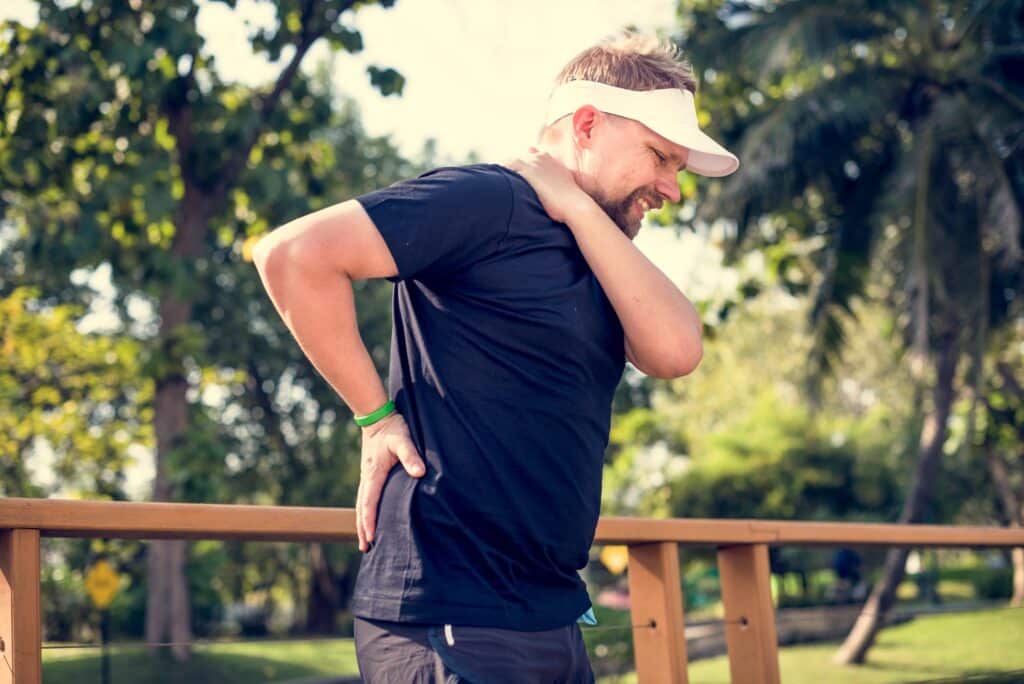
Table of Contents
ToggleIt’s the middle of the night, and you’re having a mild back spasm. Nothing to worry about, right? Maybe. A sudden onset of back pain can be a symptom of other serious conditions, including heart attack.
“The most common reason for chest pain is actually not heart related,” says Dr. Yu-Fen Chen, division chief of cardiology at Harborview Medical Center in Seattle and associate professor of medicine at the University of Washington School of Medicine.
“But if you have other symptoms along with it like shortness of breath or nausea or vomiting—or if it doesn’t go away after 15 minutes—that could be a sign that something more serious is going on.”
If you’re experiencing back pain, it’s important to know that this can be a symptom of other serious conditions. If you’re worried about your heart health, go see a doctor as soon as possible.
In addition to back pain, chest pain is another common symptom that could mean something more than just muscle strain or stress in the ribcage area. Seek medical attention immediately if you experience both symptoms at once!

Chest discomfort is the most common symptom of a heart attack. It can feel like a tightness, squeezing, or pressure in your chest that lasts for several minutes. You might also feel it in other areas, like your neck, jaw, upper back or arm.
Chest discomfort may make it hard to breathe and you may find yourself breathing faster than normal. You may also feel dizzy or lightheaded as well as nauseous. You may feel sweaty or cold despite being warmly dressed for the weather outside.
If you’re experiencing back pain, it’s important to know that it can be caused by a heart attack. The pain can spread throughout your upper body and may be sharp or dull in nature.
The most common areas for this type of discomfort are the chest, back, shoulders and arms–but sometimes neck and jaw aches are also present along with nausea or sweating.
If you experience any of these symptoms after exerting yourself during exercise or physical activity (for example: lifting heavy objects), seek medical attention immediately!

The symptoms of a heart attack can vary from person to person, but they typically include:
Chest pain or discomfort that spreads to the shoulders, arms, back, neck or jaw
If you have chest pain that lasts longer than a few minutes or gets worse, call 911. If this is your first episode of heart attack symptoms, it’s also important to get checked out at an emergency room.
If you are having trouble breathing, have severe pain in the back or side of your upper body (it may feel like an elephant sitting on your chest), vomit blood or pass out from lack of oxygen during an episode of chest pain–don’t hesitate: call 911 immediately and seek emergency care at the nearest hospital if possible.
Back pain can be caused by a variety of things, including injuries, arthritis, and even cancer. If you are experiencing persistent back pain, it’s important to see your doctor so that they can determine whether or not you have an underlying condition that requires treatment.
The first step is to figure out what is causing your pain. If your pain is acute (meaning it comes on suddenly), then it could be due to injury or trauma. If your pain is chronic (meaning it lasts more than three months), then it’s more likely to be due to an underlying condition.
If you think you might have an injury, start by seeing a doctor as soon as possible so they can assess the situation and start treatment right away if necessary. In most cases this involves rest and limited movement until the issue clears up on its own; however, in some situations surgery may be required.
If your pain is due to an underlying condition, then you’ll need ongoing treatment from a doctor or specialist depending on the cause of the problem at hand (e.g., arthritis).
GET IN TOUCH +
285 Sills Road
Building 5-6, Suite E
East Patchogue, NY 11772
(631) 475-5511
184 N. Belle Mead Road
East Setauket, NY 11733
(631) 675-6226
GET IN TOUCH +
285 Sills Road
Building 5-6, Suite E
East Patchogue, NY 11772
(631) 475-5511
184 N. Belle Mead Road
East Setauket, NY 11733
(631) 675-6226
SUBSCRIBE TO OUR NEWSLETTER +
Send us a Google review. Click this link and let us know how we did!
Review us on Yelp too.